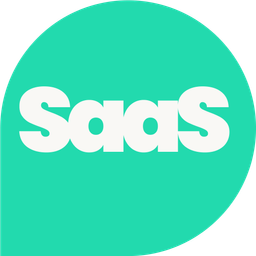"Sales enablement can't be reactive. It has to be a full-blown strategy that's woven into the fabric of the company." - Roderick Jefferson
Very rightly said by Sir Roderick. Sales enablement shouldn't be treated as a reactive response to immediate challenges, but rather as a proactive, strategic approach fully integrated into a company's operations.
The days of throwing reactive solutions at sales challenges are long gone.
In today's competitive landscape, sales enablement needs to be a fully-fledged strategy that's seamlessly woven into the very fabric of your company.
In this article I hope to delve into why a proactive, strategic approach to sales enablement is crucial for maximizing your sales team's potential and driving sustainable revenue growth.
Why reactive sales enablement fails
● Firefighting mentality: Reacting to immediate problems leads to tactical solutions that lack long-term vision and are inevitably not sustainable.
This patchwork approach fails to address the root causes of your sales challenges.
● Inconsistent messaging and resources: Sales reps are left scrambling for information and delivering disjointed customer experiences.
This inconsistency only leads to confusion and a diminished brand image.
● Missed opportunities: A reactive approach fails to capitalize on market trends or anticipate competitor strategies, this then leaves your sales team lagging behind the curve.

Embracing a proactive strategy
By implementing a comprehensive sales enablement strategy, you can:
Equip your sales force with the right tools and resources:
This includes sales collateral, training programs, coaching, and access to data and analytics.
A well-equipped enablement team can effectively communicate your value proposition, address customer pain points, and close deals with confidence.
Create a personalized customer experience:
Proactive sales enablement fosters a customer-centric approach. By understanding customer needs and preferences, sales reps can deliver tailored solutions that resonate with each individual.
Drive consistent revenue growth:
A well-defined strategy aligns sales activities with broader business goals. This streamlines processes, optimizes resources, and ensures your sales team contributes directly to achieving your financial objectives.
Weaving sales enablement into the company culture
To make sales enablement truly impactful, consider these steps:
- Align with company goals: Ensure your strategy supports your overall business objectives and key performance indicators (KPIs).
- Secure leadership buy-in: Gain strong support from leadership to secure the necessary resources and budget for successful implementation.
- Foster collaboration: Break down silos and encourage cross-functional collaboration between sales, marketing, and other relevant departments. This ensures everyone is working towards the same goals and delivering a unified message.
- Embrace continuous learning: Cultivate a culture of continuous learning within your sales team. This includes providing ongoing training, encouraging knowledge sharing, and actively seeking feedback to refine your strategy.
- Leverage technology: Utilize sales enablement platforms, automation tools, and data analytics to manage resources, deliver training, track performance, and make data-driven decisions.
By adopting this proactive and integrated approach, you can transform your sales enablement efforts from a reactive band-aid into a powerful engine for driving sustainable success.
You can also cultivate a high-performing sales team and achieve sustainable revenue growth.
Imagine you sell a complex software product to large enterprises.
Just throwing a bunch of product brochures and generic sales scripts at your team won't be enough to close deals.
A strategic sales enablement approach would consider several factors:
🎯 Target audience:
Your sales reps need in-depth knowledge of your ideal customer profiles. This includes their specific pain points, buying journeys, and technical needs.
💡Content personalization:
Sales reps should be equipped with presentations, demos, and case studies tailored to address the unique challenges of each prospect.
🏈 Sales training:
Generic sales training won't do, reps need training on the specific features and benefits that resonate with your target audience.
This might include role-playing exercises to practice handling objections and navigating complex sales conversations.

🤝 Alignment with marketing:
Marketing creates content to attract leads, sales enablement ensures a smooth handoff from marketing-qualified leads to the sales team.
This includes sharing lead nurturing materials and ensuring messaging consistency across departments.
By taking this strategic approach, you empower your sales reps to:
● Become trusted advisors: They can delve deeper into customer problems and propose solutions that directly address their needs.
● Shorten sales cycles: Reps can deliver targeted pitches that resonate with prospects, leading to faster conversions.
● Increase win rates: With the right knowledge and resources, reps are better equipped to handle objections and close deals.
This strategic approach to sales enablement can lead to a significant competitive advantage, boosting sales performance and driving revenue growth.
Authenticity in enablement
Authenticity is a hugely powerful force when it comes to sales enablement, in an industry filled with sales pitches and marketing messages, people crave genuine connections.
From my experience, authenticity matters as it fosters trust, allows for you to build human connections, and more effective communication that's clear, concise, and avoids jargon.
To incorporate authenticity into your enablement strategy, here are some of my best practices:
✅ Storytelling: Share real-life stories of success (and challenges too) to illustrate concepts and make them relatable.
✅ Encourage individuality: Recognise that different people learn and respond in different ways, tailor your approach to individual needs.
✅ Embrace transparency: Be honest about limitations and openly address challenges.
By prioritizing authenticity, you can create a more effective & engaging enablement experience that empowers your team to succeed.
Remember, a well-equipped and empowered sales team is the key to achieving your business goals and standing out in the competitive market.
Like what you see? Why not check out exclusive insights from some of the leading minds in SaaS with a SaaS Alliance membership plan?




